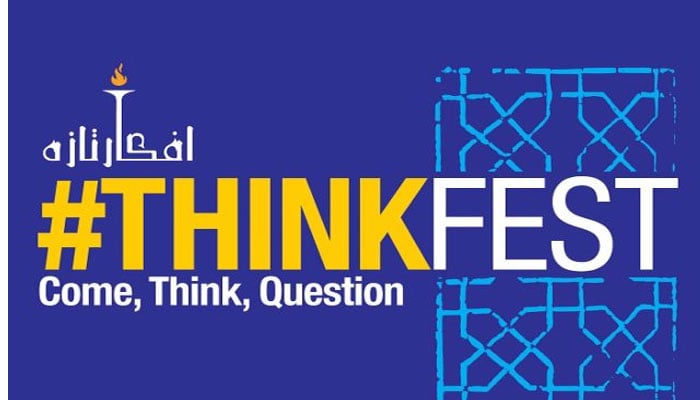Afkar-e-Taza ThinkFest: ‘Radicalisation has more to do with social inequality than ideology’
LAHORE: ‘Radicalisation has more to do with social inequality than ideology’, said Dr Tahir Abbas from Leiden University.
According to a press release Sunday, speaking at Afkar-e-Taza ThinkFest conversations online with analyst Azeema Cheema, Dr Tahir Abbas explained how polarisation and social exclusion are at the root of radicalisation around the world.
“Ideology is certainly a pull factor, but the push factors are inequalities, and once they are addressed, radicalisation will come down,” he explained. Giving an example, Dr Abbas noted that magazine of the so-called Islamic State is published in 26 languages: ‘Most of the topics covered there are about how Muslim youth in the West feel disempowered — that is the central issue,’ he maintained. Despite mounting evidence of factors other than ideology being more important the ‘state and the political elite are in denial,’ exclaimed Dr Abbas.
“In fact, even the media, especially the West, wants to keep framing the issue as an ideological one for its own benefit,” he noted. “Capitalism needs an “other” and so it is easy to frame it in ideological term,” Dr Abbas emphasised.
He then gave the example of the Quilliam Institute in the UK, which was set up by ‘ex-radicals’ but has now floundered, since by simply creating “performers” who are supposed to have been, “cured” the state cannot absolve itself of its responsibility of combating exclusion.
“The Quilliam Institute was a wedge between the UK government and the people, and it failed to address the real issues,” noted Abbas. Asked by Azeema Cheema about what policy mechanisms need to be built for inclusion, Dr Abbas said first “there cannot be a predetermined outcome of interventions”. Secondly, we need to build societies from the bottom up and address issues of racism, equal opportunity and access. Thirdly, we need to treat people like human beings.
Often de-radicalisation programmes treat issues like education, jobs and a decent livelihood as some sort of a “reward” for de-radicalisation, or as “countering violent extremism” measures when they are the right of all human beings and should be present regardless, he insisted.
When asked by Azeema Cheema about different forms of radicalisation around the world, Abbas emphasised that radicalisation is now patent in a number of societies. Take the example of Hindutva in India, or particular nationalist views in Israel, both are racist and exclusionary and creating deep fissures in their societies, he noted.
Asks about radicalisation in Europe, Abbas said it is not Islamic radicalisation which is the main problem in Europe now, but far-right radicalisation which is Europe’s biggest threat. Just last month two plots by far right radicals were thwarted in the UK alone, showing that it is an increasing threat in Europe, and must be tackled, Abbas concluded.
-
 Selma Blair Explains Why Multiple Sclerosis 'isn't So Scary'
Selma Blair Explains Why Multiple Sclerosis 'isn't So Scary' -
 Will Smith Surprises Wife Jada Pinkett With Unusual Gift On Valentine's Day
Will Smith Surprises Wife Jada Pinkett With Unusual Gift On Valentine's Day -
 Shamed Andrew Has Paid Royal Favours With ‘national Scandal’
Shamed Andrew Has Paid Royal Favours With ‘national Scandal’ -
 Prince William Ticked Off By How Andrew ‘behaved With Staff’
Prince William Ticked Off By How Andrew ‘behaved With Staff’ -
 Prince William Questions Himself ‘what’s The Point’ After Saudi Trip
Prince William Questions Himself ‘what’s The Point’ After Saudi Trip -
 James Van Der Beek's Friends Helped Fund Ranch Purchase Before His Death At 48
James Van Der Beek's Friends Helped Fund Ranch Purchase Before His Death At 48 -
 King Charles ‘very Much’ Wants Andrew To Testify At US Congress
King Charles ‘very Much’ Wants Andrew To Testify At US Congress -
 Rosie O’Donnell Secretly Returned To US To Test Safety
Rosie O’Donnell Secretly Returned To US To Test Safety -
 Meghan Markle, Prince Harry Spotted On Date Night On Valentine’s Day
Meghan Markle, Prince Harry Spotted On Date Night On Valentine’s Day -
 King Charles Butler Spills Valentine’s Day Dinner Blunders
King Charles Butler Spills Valentine’s Day Dinner Blunders -
 Brooklyn Beckham Hits Back At Gordon Ramsay With Subtle Move Over Remark On His Personal Life
Brooklyn Beckham Hits Back At Gordon Ramsay With Subtle Move Over Remark On His Personal Life -
 Meghan Markle Showcases Princess Lilibet Face On Valentine’s Day
Meghan Markle Showcases Princess Lilibet Face On Valentine’s Day -
 Harry Styles Opens Up About Isolation After One Direction Split
Harry Styles Opens Up About Isolation After One Direction Split -
 Shamed Andrew Was ‘face To Face’ With Epstein Files, Mocked For Lying
Shamed Andrew Was ‘face To Face’ With Epstein Files, Mocked For Lying -
 Kanye West Projected To Explode Music Charts With 'Bully' After He Apologized Over Antisemitism
Kanye West Projected To Explode Music Charts With 'Bully' After He Apologized Over Antisemitism -
 Leighton Meester Reflects On How Valentine’s Day Feels Like Now
Leighton Meester Reflects On How Valentine’s Day Feels Like Now




